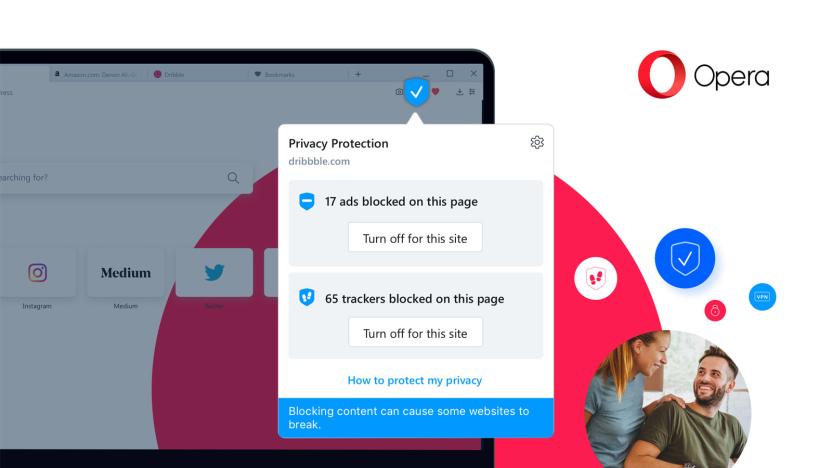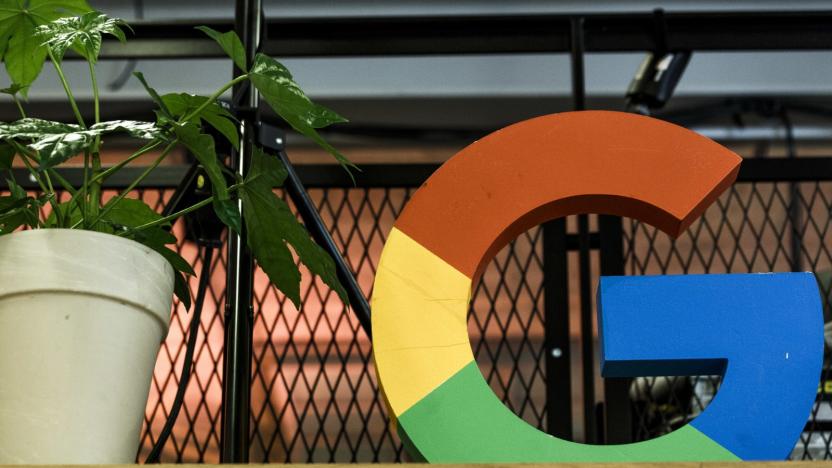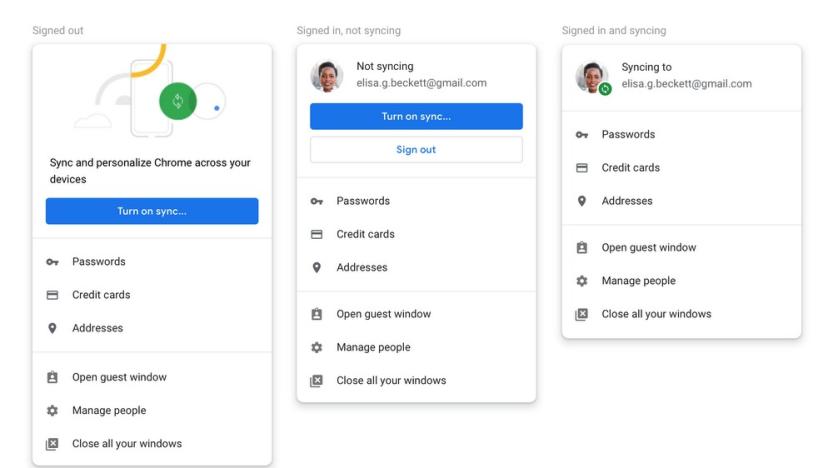cookies
Latest

Safari now blocks all third-party cookies by default
Apple's latest flurry of software updates included an important step forward for web privacy. The latest version of Safari for iOS, iPadOS and macOS now blocks all third-party cookies by default -- it's the first mainstream browser to do so, the WebKit team's John Wilander said. The Tor Browser is the only known browser to do so before Safari, while Brave's browser still has a few (if minor) exceptions.

Most websites don't follow European cookie consent laws, study shows
Websites that operate in Europe are supposed to follow GDPR rules that let consumers to opt out of cookie-type tracking. However, most are making it "substantially more difficult" to reject all tracking than to accept it, according to a new study called Dark Patterns after the GDPR, by researchers from MIT, UCL and Aarhus University. In fact, only 11.8 percent of the 10,000 websites they checked "meet the minimal requirements that we set based on European law," the team wrote.

Firefox update adds detailed tracking reports and password tools
Back in June, Firefox launched Enhanced Tracking Protection, a feature that tries to protect your privacy by blocking more than a thousand third-party trackers by default. With its latest update, which you can download today, Firefox now provides a dashboard that details exactly how the browser goes about protecting your personal information.

Opera's stricter privacy controls could also speed up your web browsing
Opera doesn't want to miss the browser privacy bandwagon, and it's taking an unusual angle to sell it: it's promising a speed boost. The newly released Opera 64 includes a tracker blocker that prevents sites from tracking you across the web (usually for ads or behavior fingerprinting) and, reportedly, delivering roughly 20 percent faster page load times. That's likely to vary sharply, but it's something to consider if you're hoping to tackle privacy and performance at the same time. You can turn the feature off on entirely or on a per-site basis if there are any hiccups.

Firefox 69 blocks cookies and crypto-mining tracking by default
After announcing new security efforts in June, Mozilla is now rolling out the features for all Firefox users on Windows, Mac, Linux and Android. By partnering with Disconnect, Firefox will now block third-party cookies; it can also block crypto-miners from accessing users' hardware. With Firefox 69 (rolling out today), these options will be enabled by default.

Apple is trying to make web ads truly private
Apple's privacy push is extending to an area where you might not expect it: web ad tracking. The company's John Wilander has outlined a new system, Privacy Preserving Ad Click Attribution, that would help marketers track the success of ads without tracking individual users. Host sites would store generic ad clicks, while the advertisers' sites would match the number of conversions (people who went on to make transactions) with a 24- to 48-hour delay to prevent profiling. Your browser would send ad click attribution data for those matches, but only in a special, optional private browsing session that prevents cross-site tracking.

Chrome will let you block cross-site tracking
The rumors were true -- Google plans to let you block cross-site tracking in Chrome. The search firm has unveiled efforts to improve its cookie controls by distinguishing between single- and multi-site cookies, giving you the option to delete trackers without losing the cookies you use for logins and other important tasks. To make that work, Google will ask web developers to specify which cookies work across sites -- if they don't, Chrome won't play nicely.

Google may let users limit tracking in Chrome
Google might not be done tightening privacy controls. Wall Street Journal contacts claim that the search firm is poised to launch a "dashboard-like" element in Chrome that would not only show more detail about tracking cookies, but give you options to limit them. While the concept isn't novel (Mozilla practically builds Firefox around tracking protection), it would be a significant break for a company whose very business revolves around advertising and user data.

Opera for Android will get rid of annoying cookie prompts
If you're frustrated at having to constantly close "we use cookies" dialog boxes on websites in the GDPR era, relief might be in sight. Opera has released an updated Android browser with an option to block cookie dialogs. Flip it on through the ad blocking settings and Opera will close as many of those intrusive prompts as it can. There's no guarantee it will work (Opera is relying on a mix of CSS and JavaScript detection), but the company said it had tested the feature with 15,000 sites and was accepting feedback on its success rate through the beta version.

Chrome 70 will let users decline linking web, browser sign-in
Over the weekend professor and cryptographer Matthew Green noticed that in Chrome 69, signing into Google websites while using Chrome caused the browser to show him as signed in there as well. Concerned about the implications of tracking behavior across a browser session even though he had intentionally not signed into Chrome, he wrote about it. Google Chrome manager Adrienne Porter Felt explained that the change happened to remind users of who is signed in, and that it did not sync activity to the server under the Google profile unless additional steps were taken.

Firefox will soon block ad trackers by default
Mozilla has for years let you stop ad trackers from collecting your data, and, soon, Firefox will block them by default. The browser will also give you more control over the data you share with websites.

What you need to know about Apple’s war on ‘digital fingerprinting’
Most everyone is aware of how tracking cookies work (or if you're not, you should be). They're little pieces of data added to your browser that track your behavior on the web. Usually, you notice them when you search for something like basketball and every ad you get for the next few days is about basketball.

The big stores that track your every online move
A study by Princeton researchers came to light earlier this month, revealing that more than 400 of the world's most popular websites use the equivalent of hacking tools to spy on you without your knowledge or consent.

Yahoo hackers accessed 32 million accounts with forged cookies
In a regulatory filing, Yahoo revealed some additional details about data breaches that have affected over a billion accounts. Among that information is the news that hackers who obtained Yahoo's code and were able to create their own cookies were able to access 32 million accounts through 2015 and 2016. Additionally, the 10-K statement provided to the SEC says that Yahoo notified 26 individuals and consulted with law enforcement after it became aware that state-sponsored hackers had exploited its account management tool for access.

FTC tells Verizon 'supercookie' partner to give you an exit
Verizon (aka our corporate overlords) may have settled with the FCC over its seemingly inescapable "supercookie" web tracking back in March, but that doesn't tell the whole story. The carrier was sending that information to a third party, Turn, which used it for ad purposes. What about its fate? Well, now we know: Turn has settled with the Federal Trade Commission over charges that it deceived web surfers by tracking them even when they took steps to avoid monitoring. The company not only has to properly disclose the nature of its tracking, but offer an "effective" opt-out. In the "supercookie" days, the opt-out only worked for mobile web browsers, not ads within apps -- that shouldn't be a problem following the FTC order.

Facebook locks down Belgian site following tracking lawsuit
It's not altogether surprising that a website some use to scrapbook their entire lives be regularly held to account over its privacy policies. Facebook's ongoing legal predicament in Belgium isn't concerned with how it treats users, though, but how it tracks any visitor to its pages, logged-in or not. After the country's privacy watchdog concluded Facebook was violating European Union law by tracking non-users through persistent cookies without their consent, the social network found itself on the wrong end of a lawsuit. A Belgian court demanded Facebook stop the practice, and pre-empting the order coming through this week, the website has gone into lockdown. So for now, only visitors from Belgium that are logged-in to the platform can view Facebook pages.

Belgium hauls Facebook to court over excessive tracking
Belgium's privacy watchdog has sued Facebook, following through on a threat it made last month. It claimed at the time that the social network "tramples on European and Belgian privacy laws," and demanded that it make changes to avoid legal action. Its main concern was not the tracking of logged-in Facebook users, but the privacy invasion of non-users on unrelated sites with Facebook "cookies" and other trackers. "These recommendations are chiefly aimed at protecting internet users who are not Facebook members," said the commission's president.

Facebook's web tracking could violate European privacy law
If Facebook thought it had a lot of privacy-related legal trouble on its plate, it hasn't seen anything yet. Researchers commissioned by Belgium's data protection agency have determined that Facebook's latest web tracking policy violates European Union privacy law. Reportedly, the social network uses cookies to track web visitors without permission, whether or not they log in or take advantage of the EU's proposed opt-out rules. Cookies are only supposed to be used when you're signed in, and only for things you've agreed to. The kicker? The opt-out system that Facebook uses appears to put another tracking cookie on your system if you're in the EU, so you never completely escape.

Google loses bid to block Safari privacy lawsuit in the UK
Back in February 2012, the Wall Street Journal revealed how Google was able to quietly bypass privacy settings in Safari and track the sites people were browsing. The company eventually paid a $22.5 million penalty to the FTC, and now a group of Brits is seeking similar compensation. Google has been trying to appeal a High Court decision that means their case can be heard in the UK, but today the bid was effectively thrown out.

Verizon Wireless will let you dodge those sketchy 'supercookies'
Living a wholly private life on the internet is getting to be impossible, but months of thinkpieces and public outcry finally seem to have done a little good where one company is concerned. According to the New York Times, Verizon Wireless is giving its customers the option to fully opt out of the quiet, advertiser-friendly web tracking it's been conducting for the better part of two years. Alas, there's no word yet on just when that change will take effect, though it can't come soon enough for the privacy advocates and concerned consumers that've been raising hell since the existence of so-called "supercookies" came to light.










